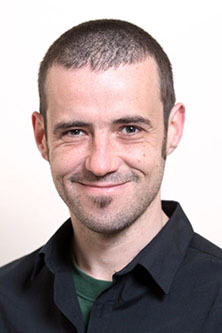Multiple Choice Question (MCQ) Online Exams in Music and Media Technologies
Dr. Enda Bates is an Assistant Professor and deputy director of the Music and Media Technologies programme in Trinity College Dublin. Here he talks about his experience of using multiple choice question (MCQ) online exams within a module on Spatial Audio, as part of the MPhil in Music and Media Technologies. |
 |
What might an ‘assignment brief’ look like for this assessment type in your context?
The assignment brief (for the Spatial Audio module) would be similar to the following;
“This online exam is worth 10% of your final mark for the module, and involves the material covered in class up to an including Week 8 of the semester. The test contains a 15 Multiple Choice Questions, and address important points on the production, perception, and recording of spatial audio.
The test will be made available on Blackboard at 10am. At that time I will email you the password to allow you to access the test, and you will then have until 11am to complete the test. At 11, the test will automatically close down, so you will only be able to take the test during this time from 10 to 11am on Monday.”
What are the main advantages of this assessment type?
The main advantage of this test is the immediacy at which results and feedback on the answers that can be provided to the students. As it is an MCQ test, feedback on the correct or incorrect answers can be built into the test beforehand, and this information can be released to the students right away after the test has been concluded.
What are the main challenges for using this assessment type?
One challenge in this type of test, if done online, is that it is in effect an open-book exam. While this is not necessarily an issue in this instance, it may be in others. In addition, while an MCQ test can be corrected automatically, other types of questions would require direct marking by the lecturer.
Why do you use this particular assessment type in a digital context?
I use this type of assessment to ensure that students have grasped some important, fundamental concepts and points relating to spatial audio before they move on to complete their final, larger assignment worth 65% of the overall mark. In the past I noticed some common mistakes in this final assignment, so this MCQ exam was devised to ensure that students are aware of any potential gaps in their knowledge, before this arises in the final assignment.
What advice would you give a colleague thinking about using this type of assessment?
I think it’s an excellent way to assess certain small points, particularly for smaller assignment weightings. It is important though to ensure that feedback on both correct and particularly incorrect answers are provided in detail.
Do you recommend any resources or technologies to support this type of digital assessment?
For this type of assessment, Blackboard works extremely well.

